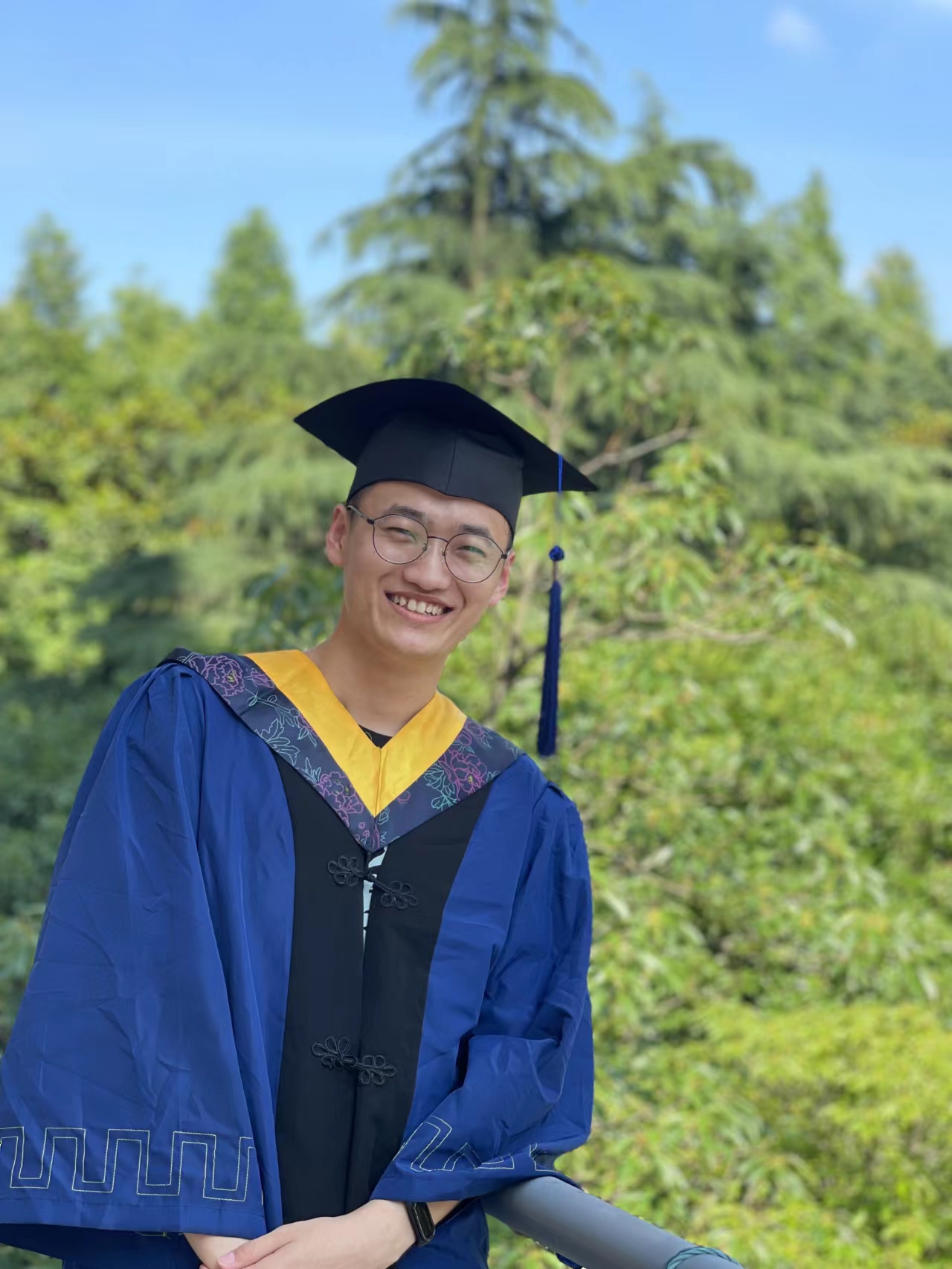Congratulations to Zhang Hongkun on successfully graduating!
Zhang Hongkun, who graduated with a bachelor’s degree from Inner Mongolia Agricultural University, joined the School of Computer Engineering and Science at Shanghai University in 2019 to pursue a research-oriented master’s degree. After starting his studies, he joined the research group led by Professor Han Yuexing to focus on research in material image processing. Under the careful guidance of Professor Han, Zhang Hongkun has accomplished the following research projects over the course of three years:
-
Faced with complex material images with uneven distribution and overlapping structures, a research study was conducted on feature information processing methods based on complex network theory. This method utilizes the community structure in complex networks to describe different organizations within the material. By incorporating R and T thresholds during the network construction process to accelerate the dynamic evolution of network topology, an RT-modularity measure is proposed to evaluate the network’s topology and facilitate image processing. The effectiveness of this method is validated through segmentation experiments conducted on images of ceramics and steel.
-
In the face of complex texture images with multiple features, a feature information processing method based on traditional image processing techniques is proposed. This method takes advantage of the characteristics of material images and designs corresponding algorithms for feature information processing. It utilizes the extracted shape features to accelerate the processing of texture features, significantly reducing the processing time. The effectiveness of this method is demonstrated through experiments conducted on thin film patterns with irregular shapes and complex textures.
-
To further enhance processing speed and reduce computational resource consumption, a feature information processing method based on deep learning is designed and proposed. This method applies lightweight neural network models to texture authentication research. By introducing coordinated attention mechanisms and designing loss functions, the algorithm ensures accurate recognition rates. Compared to other studies that utilize deep learning for texture authentication, this method not only reduces resource consumption but also validates its effectiveness on a large-scale material image database with complex textures.
After graduation, Zhang Hongkun joined AMD Corporation to engage in software development-related work. Throughout his three-year graduate career at Shanghai University, Zhang Hongkun demonstrated a strong commitment to learning, continuously enhancing his professional knowledge and research presentation skills. He displayed enthusiasm in building connections with mentors and friends who provided valuable guidance and support. We hope that Zhang Hongkun will stay true to his original aspirations, remember his mission, and bravely overcome challenges while forging ahead on his future path.

Essay: Research on Feature Information Processing Methods for Complex Material Images